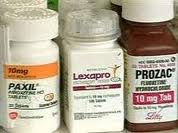As a Dallas SimplyThick Necrotizing Enterocolitis attorney, I am providing this FDA update and press release.
FDA notified parents, caregivers and health care providers not to feed SimplyThick, a thickening agent for management of swallowing disorders, to infants born before 37 weeks. The product may cause necrotizing enterocolitis (NEC), a life-threatening condition characterized by inflammation and death of intestinal tissue. SimplyThick is a brand of thickening agent—available to consumers and medical centers—to help manage swallowing difficulties. It is sold in packets of individual servings and in 64-ounce dispenser bottles. The product can be purchased from distributors and local pharmacies throughout the United States.
On May 20, the FDA issued a SimplyThick public health warning following 15 cases of necrotizing enterocolitis (NEC) in premature infants who were fed it, including at least two deaths. The FDA said the thickening agent should not be given to any infants who were born before 37 weeks of gestation.
FDA officials said they were first made aware of the potential risk of bowel problems from SimplyThick after reports were submitted by doctors to the FDA’s Adverse Event Reporting System (AERS) on May 13. At least four different medical centers have had infants contract necrotizing enterocolitis from SimplyThick.
FDA officials indicate that they are unable to determine, why SimplyThick side effects would cause necrotizing enterocolitis in premature infants. The condition usually affects infants very early, but those that appear to be related to SimplyThick had a late onset, with some not being affected until they had been released from the hospital.
Necrotizing enterocolitis is an intestinal disorder that results in inflammation and necrosis of intestinal tissues. It is usually diagnosed in premature babies and can be life-threatening. Symptoms can include a bloated abdominal area, green-tinged vomiting and blood stools.
The FDA is currently investigating the link between SimplyThick and the bowel problems for infants. Parents, doctors and care givers are urged not to give SimplyThick to premature infants. Parents and caregivers who have questions or concerns related to the use of the product and/or who have medical concerns should contact their health care provider.
Health care professionals and patients are encouraged to report adverse events or side effects related to the use of this product to the FDA’s MedWatch Safety Information and Adverse Event Reporting Program by:
Completing and submitting the adverse report online: www.fda.gov/MedWatch/report.htm
Downloading the pre-addressed, postage-paid FDA Form 3500 (calling 1-800-332-1088 request the form), and faxing it to 1-800-FDA-0178; or
Mailing the completed form to MedWatch 5600 Fishers Lane, Rockville, MD 20857.
 Dallas Fort Worth Injury Lawyer Blog
Dallas Fort Worth Injury Lawyer Blog











